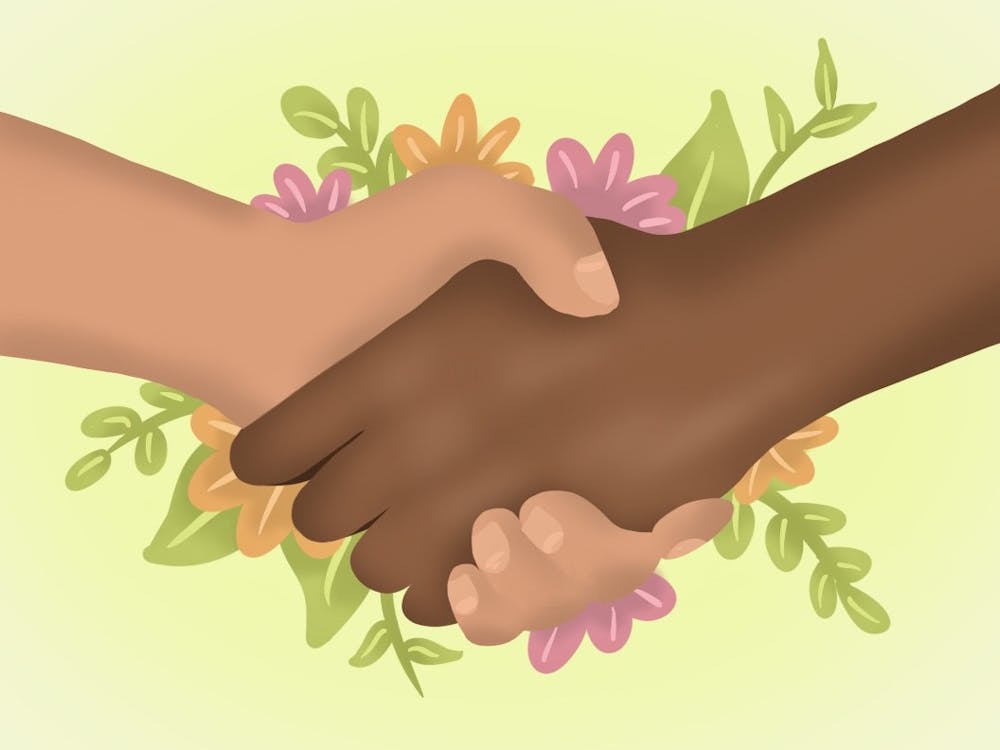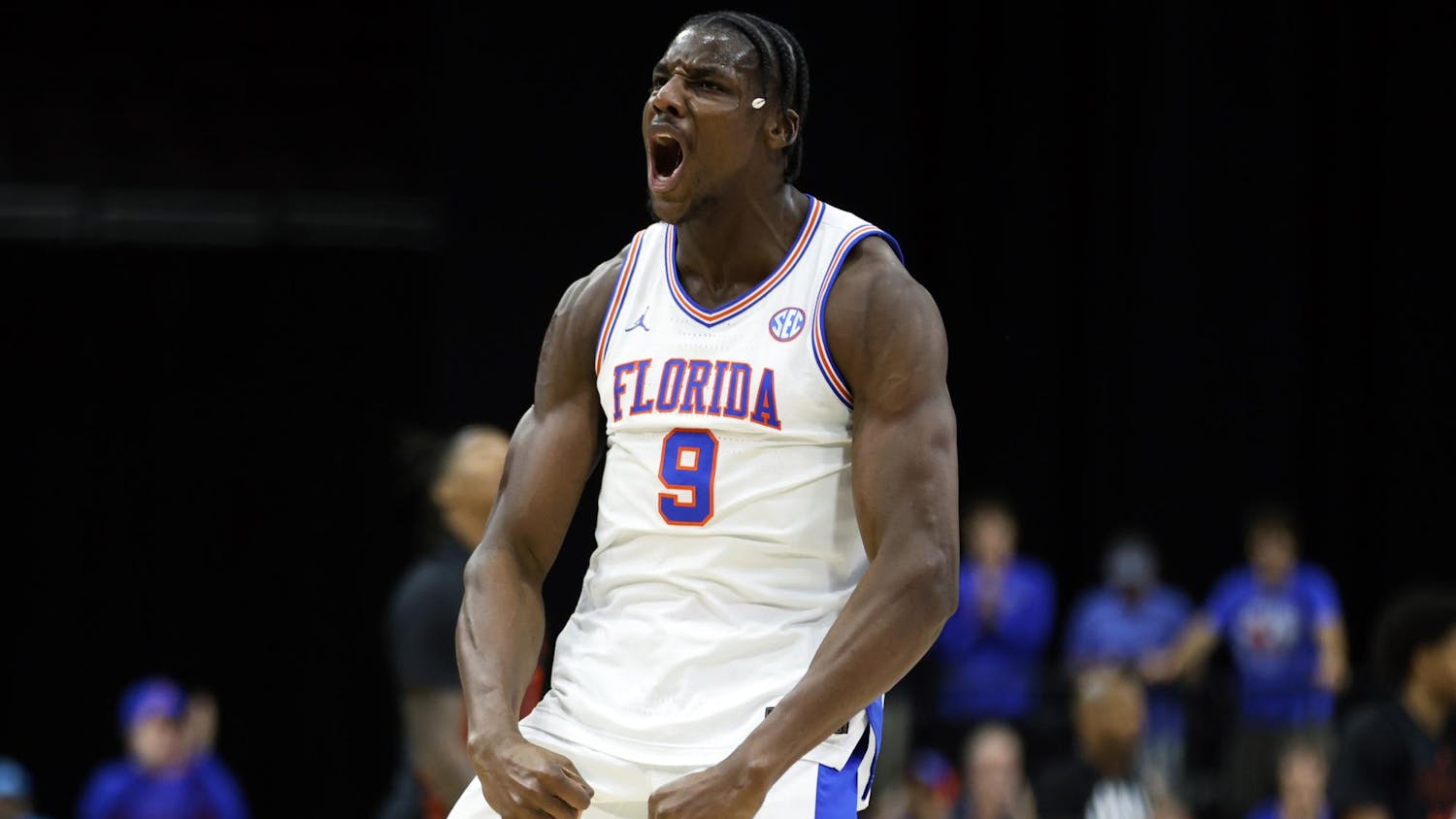Sitting in the Broward common room, Sofia Dupee introduced herself to a group of girls, and they eventually went to dinner. That group would later become her closest friends a year later.
“I think that was probably the most raw, natural way I've ever met a friend,” the 19-year-old UF nursing sophomore said.
Dupee’s story is reminiscent of many college freshmen, according to a 2018 poll by Elon University. Nearly 80% of college students said they met their closest friends within the first year of school.
Last year, 12% of Americans said they had no close friends, a significant increase from 3% in 1990, according to a 2022 American Perspectives survey. Factors like the pandemic and online social media networking are possible factors for the decline in friendship, as well as a lack of walkable areas to form human connections.
But collegiate friendship at UF differs from this trend.
College is unique for its defiance of factors typically attributed to loneliness: It’s a place built to be inherently communal through dormitories, dining halls, walkable campuses and numerous clubs and organizations. With more than 900 student organizations, UF promotes the idea that students in search of friendships and a sense of belonging will have plenty of options.
However, factors like living arrangements and club participation can determine whether they succeed.
Gatorwell Assistant Director Megan Johnson wrote in a statement social wellness is one way to support the student experience. Johnson defined social wellness as “building connection, a sense of belonging and a well-developed support system.”
“What we know is that UF students have a desire to be connected and build relationships with peers,” Johnson said.
Almost 45% of UF respondents socialize with their friends one to five hours a week and 29.6% socialize six to 10 hours per week, according to the 2022 National College Health Assessment Data. When comparing this data to the American Perspectives Survey, UF ranks higher than most American adults for social interaction.
For Juliet Boos, an 18-year-old psychology freshman, despite her efforts, it’s hard to make connections. Living off-campus in an apartment with no roommates, Boos said she lacks the traditional dorm experience and attends UF social activities such as GatorNights.
“Even if you go alone, you're going to want to find someone to talk to or you're going to see someone and you're going to be like, ‘Hey, can I hang out with you?’” she said. “And that's kind of what I did.”
Despite the fleeting, temporary nature of these connections, Boos said simply meeting different people makes the events worthwhile.
Boos thinks making friends in college is significantly more difficult than high school, where nearly all students share classes and a small community, she said. In college, students have more freedom as they find their path, making it harder to meet people.
“I have struggled to find people who have the same ideas and thought processes as I do,” she said.
Marisa Franco, University of Maryland professor, speaker and New York Times bestselling author of “Platonic: How the Science of Attachment Can Help You Make — and Keep —Friends,” said friendship is pivotal in life.
Franco discussed self-expansion theory — the idea that the expansion of oneself is accomplished through relationships.
“Your friends introduce you to new hobbies, new interests,” she said. “They help you enrich and develop your identity.”
In college specifically, more so than other age groups, people are looking for a wider network of friends so they can absorb new worldviews and ideas, she said.
College inherently fosters connection, but Gen Z has a series of obstacles facing those connections, Franco said, such as COVID-19 and the prevalence of social media.
“I think social media inhibits connection because it gives us something else to do,” she said. “So we don't feel like we need to go out there and connect with people – it's like you get this snack of connection through TikTok, and it means you're held over enough that you don't go for the full nutrient-dense meal of like in-person social interaction.”
However, social media users engaging in social interaction can be beneficial for those friendships when used as a jump-off point to connect in person, Franco added.
“I think a lot of college students are really afraid of rejection; but one of my biggest tips is to assume people like you,” she said. “People tend to underestimate how liked they were.”
Contact Peyton at pharris@alligator.org. Follow her on Twitter @Peytonlharris.

Peyton Harris is a third-year English major and Senior News Director for the Alligator. In her free time, she likes to doomscroll on Twitter and crochet.






